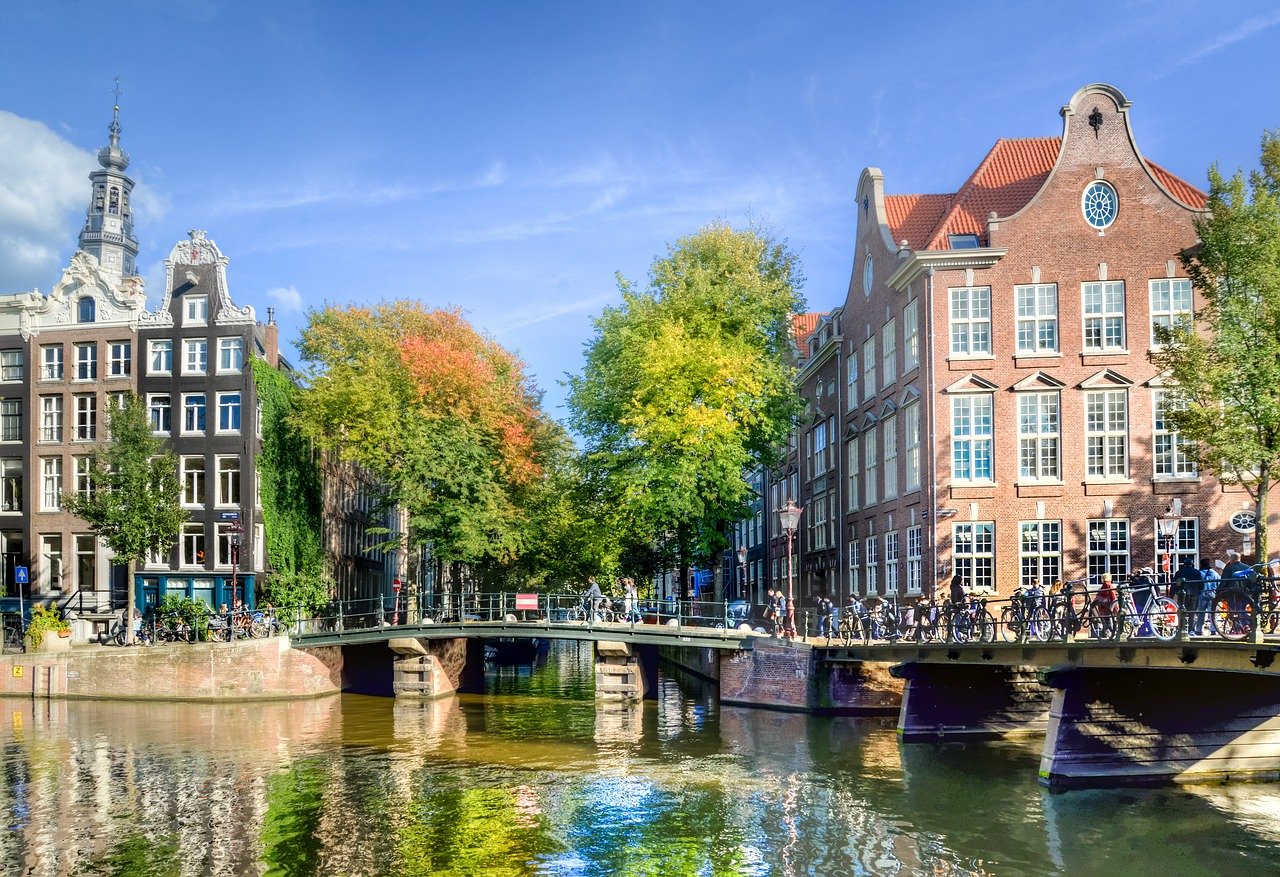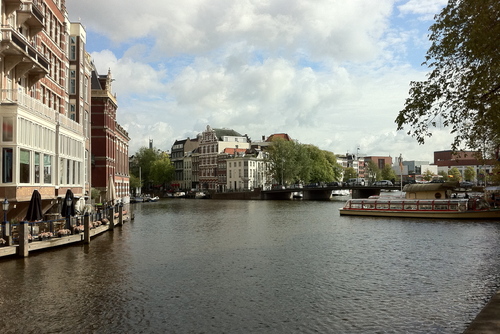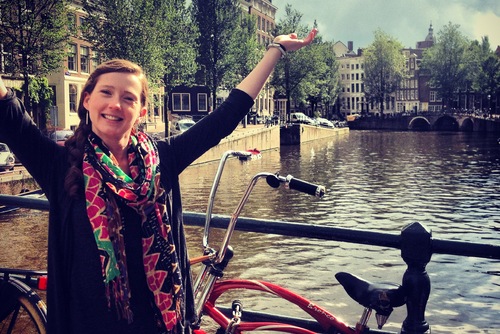Studying in the Netherlands is an excellent opportunity to get to know a vibrant and free-spirited culture and acquire a good education.
Let’s have a look at the peculiarities of the Netherlands that you should be aware of before your arrival.
1. Language Barrier? Not Here!
Although Dutch is a complicated language for foreigners, try to learn some basic phrases. It will help you to feel more confident in a new place as you will understand street signs, transportation directions, and announcements. Besides, this is a good way to show respect to the country.
However, you do not have to worry if your Dutch is not perfect. The surveys show that more than 90% of local people speak English. This does not refer only to casual conversations; Dutch universities offer English-taught programs, which facilitates the learning process for foreigners.
You will have no issue understanding and learning as a result of this. There may be problems with homework, as many students these days have a job, but even in this case, they can seek assistance from teachers and staff who provide services to students.
2. What About Culture?
The Dutch are always honest and direct. Some people may sometimes consider them rude, but openness is just another peculiarity of the Dutch mentality. People in the Netherlands value sincere conversations.
So, do not be startled when you get a rather straightforward remark. Besides, you should be ready that local people usually live according to set timetables. They plan not only work meetings but also casual hangouts. If you want to invite someone to a party, it is better to do it in advance.
3. Unusual Grading System
You should be ready that the system of grades in the Netherlands is different from the one in the US and a lot of other countries. For each paper, marks range from 1 to 10.
What confuses international students is that the grades from 1 to 5 are not even satisfactory. Getting 8 is considered “Good” when 9 and 10 are “Very Good” and “Outstanding,” respectively.
Therefore, you have to work hard to get excellent grades. However, you can also send experts a “write my essays for me” request. This will get you the desired grade and spare you some time for entertainment and traveling around Europe.
4. Enjoy Traveling Opportunities
Living in the Netherlands means that you can travel around Europe anytime you want (yet, it is better to wait for holidays not to lag behind in your studies). You are just a few hours away from picturesque cities. How does a weekend in Paris or Brussels sound like? Besides, the Netherlands itself has a lot to offer: from modern dynamic cities to cozy historic destinations.
The list of magnificent locations includes but is not limited to Amsterdam, Edam, Haarlem, and the Hague. You have a chance to explore adorable architecture, cheesemaking villages, and tulip gardens. Check out some European tours and dive into adventures with your classmates and get an unforgettable experience.
5. Student Housing Options are Limited
As for accommodation, some institutions do not have dorms, so you will need to make your own living arrangements. Try to book a place beforehand as comfortable and affordable options are rare.
Private housing, like apartments in Utrecht, can be a great option, though it may require early planning due to high demand. However, some of the Dutch universities provide housing.
Make sure you apply for it early because the offer can be limited. Living in student accommodations is a remarkable experience as you can communicate and learn about the culture of other students who come from different corners of the globe.
6. Ride a Bike
Riding a bike is one of the survival skills in the Netherlands because cycling has already become a part of Dutch culture. In addition, it is an easy and eco-friendly way to get around.
The country has a well-designed infrastructure to ride safely and comfortably. Besides, you can explore famous attractions of the country and enjoy the views during long bike rides. We recommend you to learn how to ride a bike beforehand because you will definitely need this skill in the Netherlands.
7. No Cash
Dutch people prefer using cards to carrying around cash. Many shops do not even accept payments in cash. Therefore, you may want to open a local bank account once you have arrived in the Netherlands. This way, you will avoid misunderstandings in shops where cash is not accepted as well as evade extra fees per your transactions if you use a foreign bank account.
8. Convenient Public Transport
The system of public transport is comfortable. As a student, you can get the OV-ChipKaart and use it in all kinds of public transport. With this card, you will get student discounts.
To plan your trips around the Netherlands, you can use the app 9292, which provides timetables and routes of buses, trams, trains, and ferries. However, you need to know some Dutch to understand announcements and navigate the city.
9. Dutch Higher Education
At the Dutch universities, you can choose between higher professional and research education programs, depending on whether your goal is a professional practice or academic participation, respectively.
Having enrolled, you will see that the educational process itself appears in the form of lectures and seminars with the noticeable dominance of the latter. Student interaction and participation are encouraged, as well as group activities and projects.
Strong student associations are present at all universities, helping newcomers to get acquainted with an institution, which is especially important for international students.
10. Vibrant Student Life
Student life at Dutch universities is diverse, open, and free-spirited as nowhere in the world.
You will not get bored because the Dutch enjoy parties and know how to have fun. Events at nightclubs and dorms, which are organized even during the working week, last till the early morning. Students also organize special welcome ceremonies for new people on the campus. So you do not have to worry.
You will find friends from your first days in the new city. Additionally, students in the Netherlands hold sports events and volunteering activities, so everyone can find an interesting way to meet new people and socialize.
The Netherlands really is one of the best places to study in Europe, hopefully our tips will help you to prepare.
Have you ever been to university in the Netherlands? Do you have any recommendations? Let us know in the comments section below.





